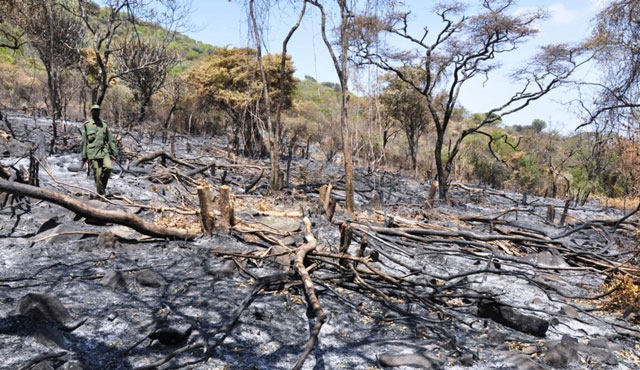
Kotido, Uganda | THE INDEPENDENT | The people in Karamoja sub region in north eastern Uganda are at risk of losing their livelihoods due to the degradation rangeland in the region. In ten years, experts have warned, there will not be any fertile soil accessible to the people left.
This is according to the study report presented to Karamoja leaders by officials from International Union for Conservation of Nature (IUCN) on Monday in Kotido.
The report shows that every year Karamoja region loses huge quantities of fertile soil to the running water speeding into the areas of Teso region.
The report highlights that the areas which would have been good for food production in the region have also been gazetted and that 77.2% of the land area in Karamoja is gazzetted under government control with 11.6% under national forest reserve, 24.8% under exclusive mineral exploration license and 40.8% under wild life and the land available to over 1.1million people in Karamoja is approximately 38% of the total land in their region.
Mr. James Omoding who presented the report on behalf of International Union for Conservation of Nature (ICUN) said the major cause of fast degradation of rangeland in the region is due to massive tree cutting for charcoal burning in the region.
“In the next ten years from now Karamoja would lost all the fertile soil because of the environmental degradation,” he said.
Mr. Isaac Bwire the official from International Institute of Rural Reconstruction (IIRR) however, said the rapid degradation of range land can be stopped if the districts of Karamoja can pass by-laws against environmental destruction in the region.
“Its all about making policy and implementing it against environmental destruction and burning bushes because it’s the root cause of degrading range land in the region,” he said.
The members of parliament for Karamoja region led by Mr. Samson Lokeris of Dodoth east in Kaabong district acknowledged the report saying it was done properly.
Mr. Lokeris said the team of Karamoja MPs is engaging government to de-gazette part of the fertile land for the community to be able to do food production.
He appealed the leaders in the region and the NGOs to embark on educating people to stop cutting down tress and bush burning.
“Our people need continuous sensitization against destruction of the environmental which has become the main source of livelihood for them,” he said.
********
URN
 The Independent Uganda: You get the Truth we Pay the Price
The Independent Uganda: You get the Truth we Pay the Price


